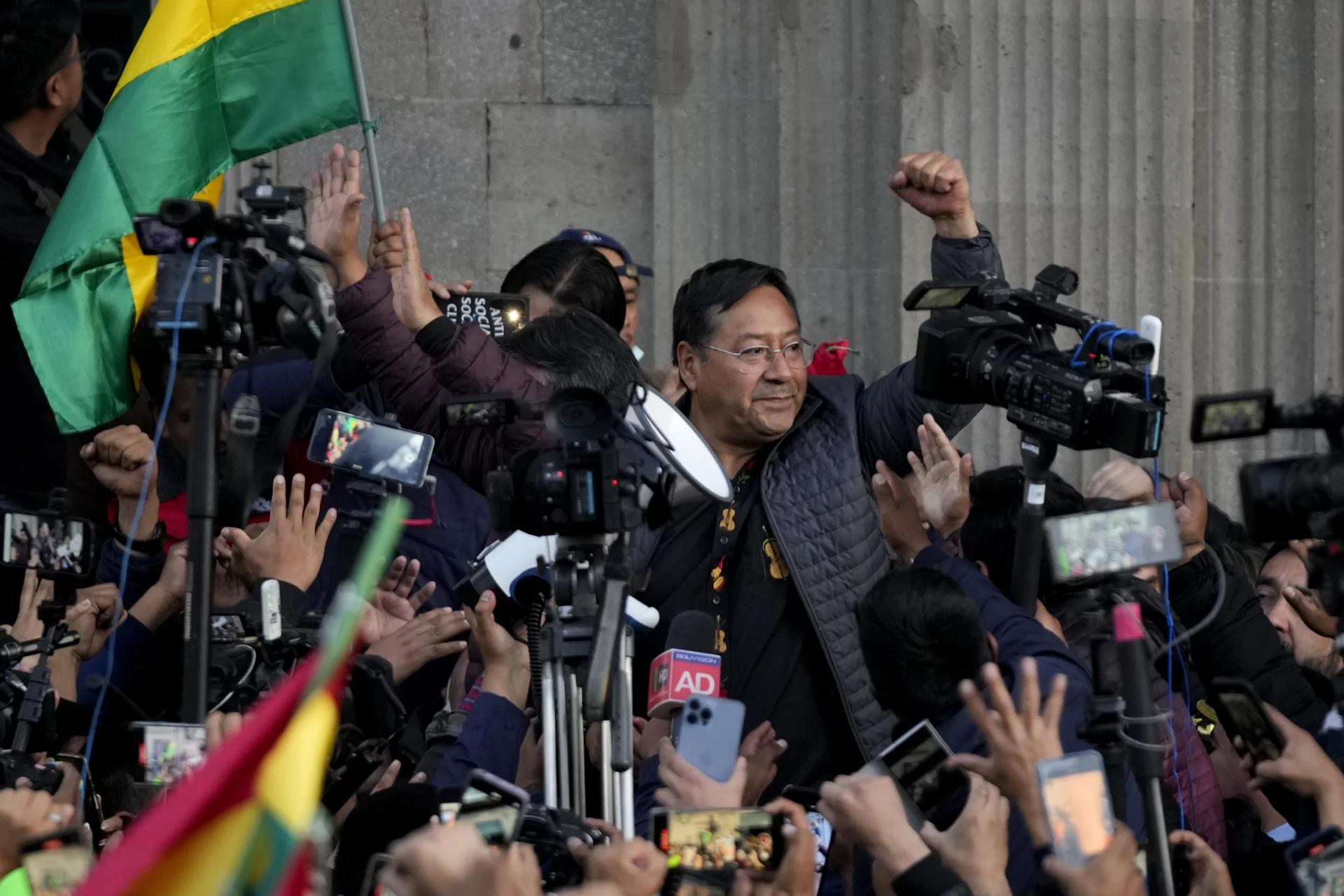SÃO PAULO, Brazil – Since military units occupied La Paz’s main square and tried to storm the governmental palace on Jun. 26 – which President Luis Arce called an attempted coup –the government and the opposition have been waging a war of narratives.
Military vehicles and troops gathered by 3 PM on Plaza Murillo, a major square in front of the governmental palace in the capital, under the orders of General Juan José Zúñiga, who had been the Army commander until his dismissal on the previous day. Soldiers tried to break into government offices, and Arce called on the Bolivian people to protest against the coup.
Hours later, the president was photographed as he confronted Zúñiga at the entrance of the palace, telling him to gather his soldiers and go away. The tension continued. As the time passed, however, the mobilization seemed to weaken. The general ended up being arrested and taken to a police vehicle. Before leaving, however, he told the press Arce had asked him to stage the coup in order to improve his approval rate.
More than 20 active and retired members of the military and civilians have been detained as a result of the Jun. 26 events. Zúñiga and other top military commanders were taken to a high-security prison near the city of El Alto, on the outskirts of La Paz, and face charges that could lead to 20-year sentences.
Many countries released statements lamenting the attempted coup in Bolivia. The Vatican “deplored and condemned” the military acts, according to the apostolic nuncio to Paraguay Vincenzo Turturro. The Holy See’s delegate to the Organization of American States’ general assembly that took place last week in Asuncion, Turturro mentioned the situation in Bolivia during the meeting.
At the height of the crisis, the Bolivian bishops issued a statement in which it expressed their repudiation “to all actions that disturb the democratic stability” in the country. The Bolivian Church asked the constitutional order to be respected and said that conflicts should be dealt with through dialogue.
In the following days, things began to get cloudy for many.
Former President Evo Morales, once a close ally of the current leader and now his fiercest opponent, declared on Jun. 30 on his radio show that Arce staged a self-coup in order to increase his popularity by playing the victim.
The self-coup theory is being advanced not only by Morales, who fights with Arce over the hegemony over their Movimiento al Socialismo (Movement towards Socialism) party and the presidential succession in 2025, but also by the right-wing opposition inside and outside of Bolivia.
Argentina’s President Javier Milei issued a statement on Jun. 30 accusing Arce of having made a false denunciation of a coup. In Brazil, Congressman Eduardo Bolsonaro, one of the sons of former President Jair Bolsonaro, has posted the same kind of accusation against Arce on social media.
The president’s administration, on the other hand, has been issuing reports on the alleged network of military and civilians which had been planning the coup.
Evangelical pastor Anibal Aguilar, whose brother was one of Evo Morales’ ministers, was appointed as the mastermind behind the scheme – something that led the National Christian Council, which gathers a number of Bolivian churches, to demand the government to respect his human rights.
While most bishops and priests have been silently waiting for the investigations, some of them didn’t hide their mistrust of the government’s narrative.
That was the case of Archbishop René Leigue of Santa Cruz.
During his homily on Jun. 30, he rhetorically asked: “What has happened? Was it a coup d’etat, a self-coup, an invasion of the State, an attack on the State? What has happened?”
“You can’t scare people. There have been very tense moments. People were in lines to buy gasoline, to buy things, to get money from the bank… You can’t scare people like that to increase someone’s popularity,” Leigue went on, alluding to Arce.
He added that “one cannot play with the sentiment of the people” and that all “Bolivians are waiting to understand what happened.”
Father Guillermo Siles, a priest in Santa Cruz and a journalist, has the same mistrust as Leigue. At first, the footage that came from La Paz and the tense political atmosphere made everybody think that a coup was going on, he said.
“That’s why the Church acted rapidly and issued a statement to defend democracy,” he told Crux.
But then, contradictions and irrationalities began to emerge, Siles said.
“The general himself accused the president. It’s very difficult to believe the government’s story at this point,” he said.
Siles said Bolivians have been deceived so many times by the government that they became “used to uncertainty.”
“Real democracy is gone. We have many elections, but the real popular participation in politics doesn’t exist anymore,” he said.
Sociologist Julio Cordova told Crux the whole operation was “poorly executed, so it’s hard to believe that it had been planned for three or four weeks, as the government reported.”
“It seems to me that it was an irrational demonstration of strength by General Zúñiga with the goal of impeding the corruption charges against him to progress,” he said.
Years ago, Zúñiga was accused by another officer of diverting thousands of dollars from social programs and army funds. He was also accused of involvement in drug trafficking, according to the Spanish-language news website Infobae.
On Jun. 25, after making radical declarations against Evo Morales, Zúñiga was taken out of the leadership of the army by Arce.
Cordova said the war between Arce and Morales is causing a progressive erosion of the country’s institutions, something that led to last week’s military insubordination.
Siles said the current war of narratives is a secondary issue in the face of the severe economic hardships in the South American nation.
“Beyond the politicians’ rhetoric, there’s real life. The people on Jun. 26 were not as worried about the coup as they were about getting something to eat,” he said.













